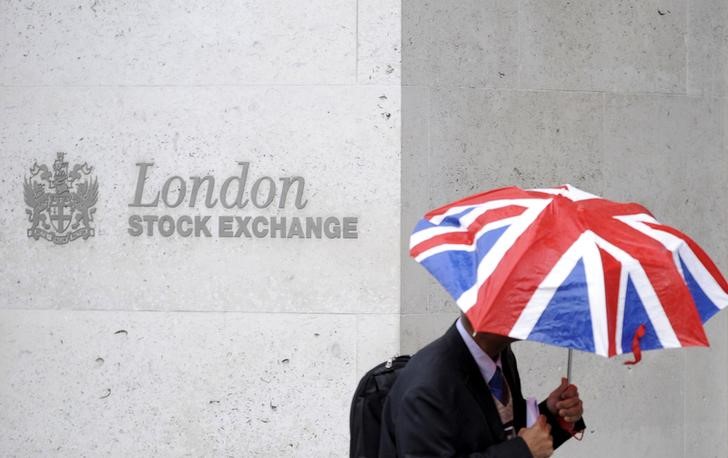By Kit Rees and Atul Prakash
LONDON (Reuters) - Britain's top share index posted its biggest one-day drop since June 2016 on Tuesday, with a jump in sterling following Prime Minister Theresa May's speech on Brexit hurting dollar-earning companies.
May promised the government would put the final deal to a vote in both houses of parliament, and said that Britain would seek an equal partnership with the EU.
"(May) said very clearly that ultimately no deal is better than a bad deal, and I think that's something that will be well-received amongst businesses in the UK," James Klempster, head of investment management at Momentum, said.
May also said that Britain will leave the EU single market when it exits the European Union, putting an end to speculation that London might try to seek a "soft Brexit".
The stronger pound put pressure on the FTSE 100 (FTSE), which is dominated by internationally-focused companies. The blue chip index extended losses to close 1.5 percent lower at 7,220.38 points, falling for a second day and marking its biggest daily loss since June 27 2016.
The mid-cap FTSE 250 index (FTMC), made up mostly of domestic companies, closed just 0.4 percent lower.
"May’s speech did not have anything new that was not already known. However, with the pound bouncing, the dollars earners are coming under pressure,” Jawaid Afsar, senior trader at Securequity, said.
Banking stocks rose, led by Standard Chartered (L:STAN), which ended 2.8 percent higher, hitting a 16-month peak earlier in the session after Bank of America (NYSE:BAC) ML upgraded its rating on the stock to "buy" from "hold". The broker raised its 2018 earnings estimate by 18 percent to reflect higher returns on the bank's excess deposits.
Royal Bank of Scotland (L:RBS) gained 2.5 percent, and Lloyds (L:LLOY) rose 1.2 percent.
Elsewhere, Rolls-Royce (L:RR) jumped 4.4 percent after the British aero-engine maker settled a long-running bribery investigation and said 2016 profit would beat expectations. The announcement came after 18 months of cost-cutting and restructuring.
Mining companies also put pressure on the FTSE 100. The sector index (FTNMX1770) fell 2.2 percent following a drop in industrial metals prices.

BHP Billiton (L:BLT), Anglo American (L:AAL) and Rio Tinto (L:RIO) fell 2.2 to 2.9 percent.